Filter by

Re-presenting the good society
A proposal for negotiating the tension between an anti-authoritarian impulse and a guiding idea of context-transcending validity in critical social theory. Contemporary critical social theories face the question of how to justify the ideas of the good society that guide their critical analyses. Traditionally, these more or less determinate ideas of the good society were held to be independent o…
- Edition
- -
- ISBN/ISSN
- 9780262270779
- Collation
- 1 online resource (x, 264 pages).
- Series Title
- -
- Call Number
- -

Radiant cool :a novel theory of consciousness
"A Bradford book."An innovative theory of consciousness, drawing on the phenomenology of Edmund Husserl and supported by brain-imaging, presented in the form of a hardboiled detective story.Professor Grue is dead (or is he?). When graduate student/sleuth Miranda Sharpe discovers him slumped over his keyboard, she does the sensible thing--she grabs her dissertation and runs. Little does she susp…
- Edition
- -
- ISBN/ISSN
- 9780262278478
- Collation
- 1 online resource (xvii, 357 pages) :illustrations
- Series Title
- -
- Call Number
- -
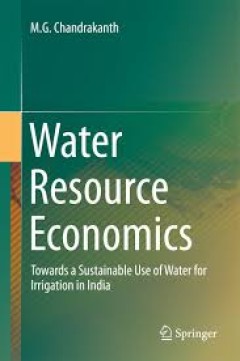
Water Resource Economics Towards a Sustainable Use of Water for Irrigation i…
This book uses resource economics costing approaches incorporating externalities to estimate the returns for the country’s irrigation and demonstrates how underestimating the cost of water leads farmers to overestimate profits. The importance of the subject can be judged in light of the fact that India is the largest user of groundwater both for irrigation and for drinking purposes, pumping t…
- Edition
- -
- ISBN/ISSN
- 978-81-322-2479-2
- Collation
- -
- Series Title
- -
- Call Number
- -
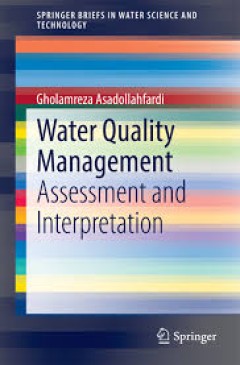
Water Quality Management Assessment and Interpretation
Considering the significance of water quality for drinking, irrigation and industry, availability of accurate and sufficient water quality data is necessary and having enough data without proper interpretation is not helpful for water quality management decisions. Hence, analysis of the existing data and prediction of future of water quality is vital. The current volume first defines the imp…
- Edition
- -
- ISBN/ISSN
- 978-3-662-44725-3
- Collation
- -
- Series Title
- -
- Call Number
- -

Water Quality Criteria Green Book of China
The book mainly introduces readers to the development and current status of water quality criteria (WQC) in China and other countries or areas, and proposes a minimum toxicity data requirement (MTDR; i.e., six species from three phyla) as the principle metric for deriving WQC in China. Further, ten model species from 4 different phyla are recommended as domestic test species, and the methodolog…
- Edition
- -
- ISBN/ISSN
- 978-94-017-7270-9
- Collation
- -
- Series Title
- -
- Call Number
- -
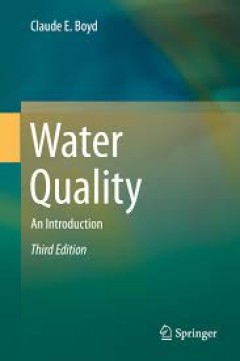
Water Quality An Introduction
The revised second edition updates and expands the discussion, and incorporates additional figures and illustrative problems. Improvements include a new chapter on basic chemistry, a more comprehensive chapter on hydrology, and an updated chapter on regulations and standards. This book presents the basic aspects of water quality, emphasizing physical, chemical, and biological factors. The s…
- Edition
- -
- ISBN/ISSN
- 978-3-319-17446-4
- Collation
- -
- Series Title
- -
- Call Number
- -

Warm-Temperate Deciduous Forests around the Northern Hemisphere
Warm-temperate deciduous forests are "southern", mainly oak-dominated deciduous forests, as found over the warmer southern parts of the temperate deciduous forest regions of East Asia, Europe and eastern North America. Climatic analysis has shown that these forests extend from typical temperate climates to well into the warm-temperate zone, in areas where winters are a bit too cold for the ‘z…
- Edition
- -
- ISBN/ISSN
- 978-3-319-01261-2
- Collation
- -
- Series Title
- -
- Call Number
- -
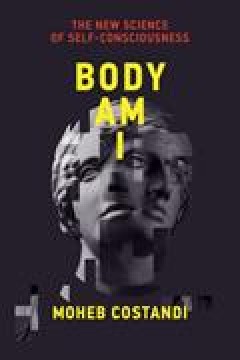
Body Am I: The New Science of Self-Consciousness
- Edition
- -
- ISBN/ISSN
- 9780262368711
- Collation
- -
- Series Title
- -
- Call Number
- -
- Edition
- -
- ISBN/ISSN
- 9780262368711
- Collation
- -
- Series Title
- -
- Call Number
- -

The Neurocognitive Theory of Dreaming: The Where, How, When, What, and Why of…
- Edition
- -
- ISBN/ISSN
- 9780262370882
- Collation
- -
- Series Title
- -
- Call Number
- -
- Edition
- -
- ISBN/ISSN
- 9780262370882
- Collation
- -
- Series Title
- -
- Call Number
- -
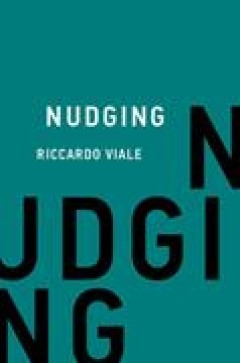
 Computer Science, Information & General Works
Computer Science, Information & General Works  Philosophy & Psychology
Philosophy & Psychology  Religion
Religion  Social Sciences
Social Sciences  Language
Language  Pure Science
Pure Science  Applied Sciences
Applied Sciences  Art & Recreation
Art & Recreation  Literature
Literature  History & Geography
History & Geography